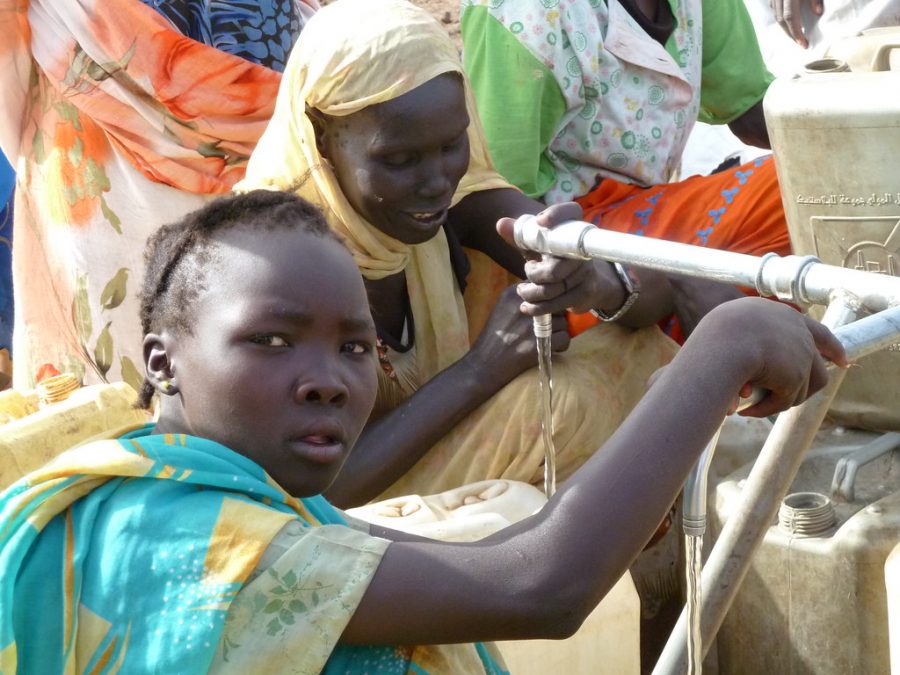Accepting refugees
Should developed countries take in more refugees?
ACCEPTION. Developed countries should take in more refugees for numerous reasons. Because they are stuck in a life or death situation and since developed countries have the best capability to help, they should.
The acception of refugees has always been a controversial topic. There are countries like Germany, who has once taken in 890,000 refugees in one year; but also, countries like Japan, who only took in 12 refugees last year.
There are a variety of reasons why countries make these decisions, but just for some insight, here are three reasons why developed countries should take in more refugees.
Developing countries cannot hold the refugees anymore
In the world right now, refugees in developing countries are not safe where they are. The vast majority of them are either in their war-torn home countries or in a developing country.
Developing countries hold 85 percent of the refugees; Lebanon, Pakistan, Uganda, and Jordan being the top four homes for them.
These countries are underdeveloped and cannot hold even more people.
As an example, in Jordan, according to UNHCR, an estimated two out of three refugees live below the poverty line. The government cannot even afford them a quality life. Moreover, according to UNHCR, the Jordanian government said that its economy is overburdened by the refugees. There ought to be a change.
We need to make sure refugees get a life where their basic needs are met. As students, although we cannot make big changes to how the refugee policies are, every small step counts. Raise awareness—let your friends and family know about this issue, start clubs about this and donate the charities helping refugees—is the best way to contribute.
Responsibility of developed countries
The main reason refugees flee their homes is due to their homes torn apart by wars. It often happens because of developed countries’ involvement.
This happens through state-funded terrorism and proxy wars. In the past century, the US alone has been responsible for more than 85 proxy wars, the UK for 33, France 37. An example would be Yemen, a site of a catastrophic U.S.-backed war. The United Nations has declared the Yemen civil war as the worst humanitarian crisis in the world. With millions facing starvation as well as sickness and death from entirely preventable diseases.
According to UNICEF, 11 million children, or “nearly every child in Yemen,” are in need of humanitarian assistance.
This war, which has left tens of thousands dead, has also left millions displaced. Each bomb that kills hundreds, and each fighter jet flying above their heads, the Yemenis people see the frightening statement: made in the USA.
Developed countries have a moral responsibility to accept these people; since they caused this, they have to do something.
Economic benefits in the long term
According to Raidió Teilifís Éireann (RTE), the national public service media of Ireland, “Today, Europe has 11 percent of the world’s population but will have only six percent by the end of this century. In the absence of immigration, the populations of many European countries could fall by up to 50% by the end of the century.”
Accepting refugees will create economic benefits for these developed countries. Countries with low birth rates, aging populations, decreasing workforce need refugees. Refugees come in large amounts and can work. The growing aging population is creating tension crisis in multiple countries.
Yes, at first, it might seem that refugees create an economic burden. However, in the long term—after they start learning the language and eventually getting a job—they will become a positive effect. Germany recently accepted a lot of refugees and the effects are already showing.
Research released by Oxford Economics, suggests that “an influx …[of refugees] over the next three years would raise the country’s [Germany's] GDP by 0.6 percent by 2020.” We need to boost the size of the workforce and the population and increase economic growth.
Developed countries should grant those innocent people a new life instead of letting them stay in their previous country- a place of war, a place of death, a place of chaos. They are in a life or death situation, and since developed countries have the best capability to help, they should.
Your donation will support the student journalists of Sycamore High School. Your contribution will allow us to purchase equipment and cover our annual website hosting costs.












